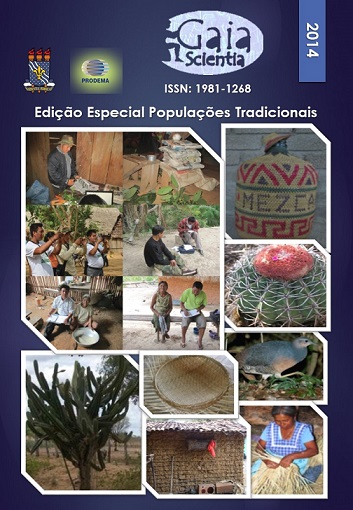Traditional knowledge of biodiversity – plant use of the Chácobo in Bolivia
Palavras-chave:
Ethnobotany, Repatriation of knowledge, Nagoya Protocol, Intellectual Property, Plant use, Amazon, BeniResumo
The Chácobo are a Panoan speaking tribe of about 500 members in Beni, Bolivia. Originally nomadic, the Chácabo were relocated to their current main location in the 1960s. Researchers have visited the Chácabo exist since 1911. A first more detailed anthropological report exists from the late 1960s, and ecological-ethnobotanical studies were conducted in the 1980s and 1990s. Our present work aims to conduct a complete ethnobotanical inventory of the entire adult Chácobo population, with interviews and plant collection conducted directly by Chácobo counterparts. We hypothesized that plant use now centers on income generation, and traditional plant use related to household artifacts and medicine, as well as traditional crop varieties had almost disappeared. Our recent work shows a more complicated picture. Missionary influence led to a knowledge decline in the generation that was adolescent during missionary rule, while the younger generation is recuperating the previous knowledge. Traditional crop varieties are still widely grown. Most Chácobo know, and can name, traditional artifacts, although only the older generation has still the skills to manufacture them. While many Chácobo still know the names and uses of medicinal species, the younger generation is often unsure how to identify them.Downloads
Não há dados estatísticos.
Downloads
Publicado
2014-12-29
Como Citar
BUSSMANN, R. W.; PANIAGUA-ZAMBRANA, N. Y. Traditional knowledge of biodiversity – plant use of the Chácobo in Bolivia. Gaia Scientia, [S. l.], v. 8, n. 2, 2014. Disponível em: https://periodicos.ufpb.br/ojs/index.php/gaia/article/view/22422. Acesso em: 29 mar. 2025.
Edição
Seção
Ciências Ambientais










